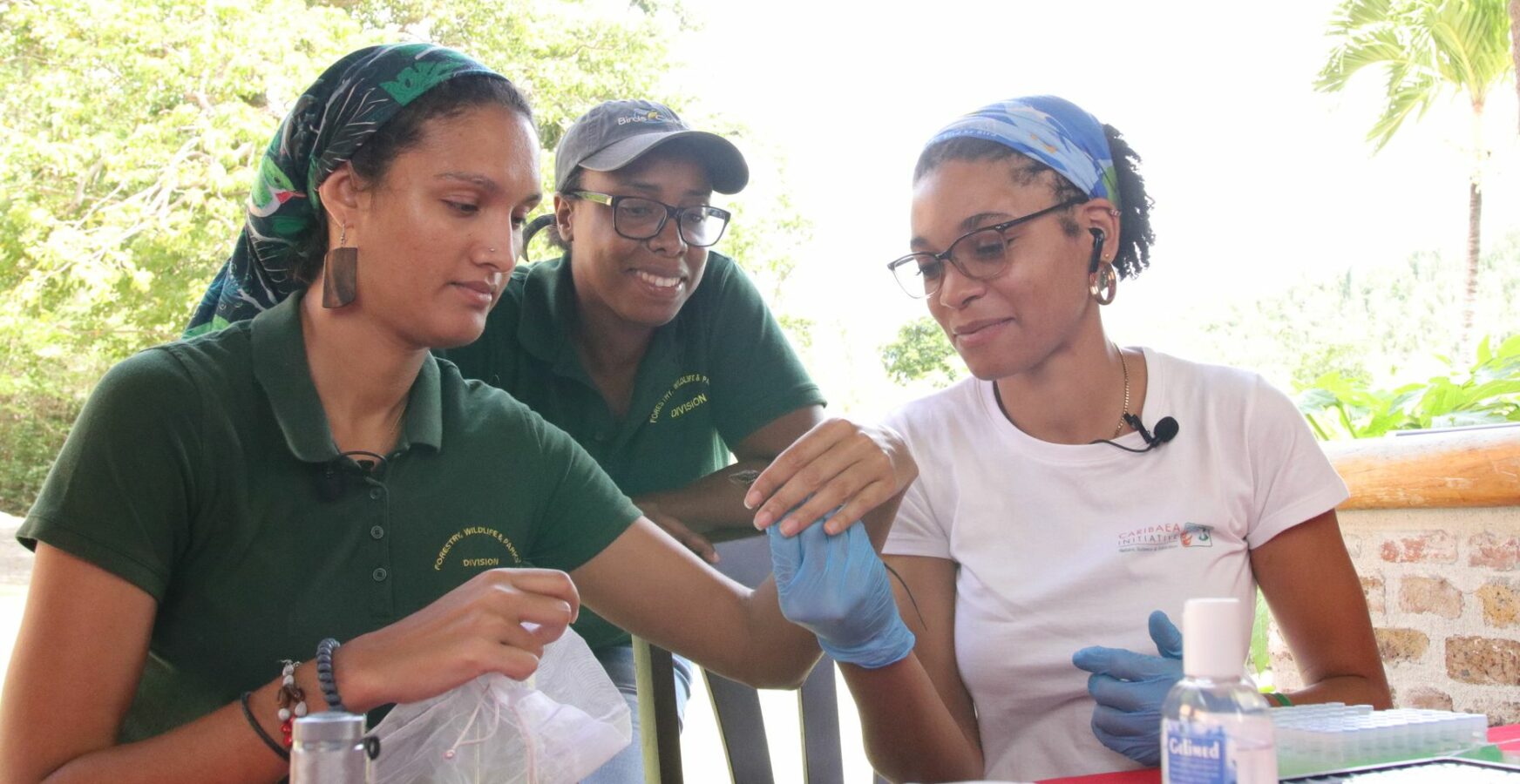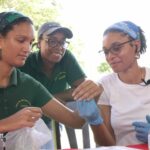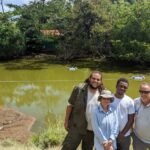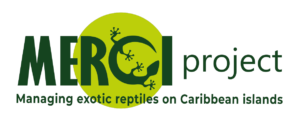The MERCI project is a research program aiming at improving the knowledge on several species of invasive exotic reptiles in the Lesser Antilles. Another ambition of the project is to reinforce the collaboration between the different territories. The last mission, which took place in Dominica, shows that both objectives are successful!
Last month, Annabelle Vidal, a Cuban specialist in the study of anole lizards, visited the island again, one year after her first mission. At that time, the objective was to set up a monitoring program of two species of anoles – a native species of the island (Anolis oculatus) and an invasive species (A. cristatellus) – thanks to the capture and the marking of individuals, while training the partners of the project there in these techniques (read the article). This time, the mission focused on the diet of the two species.
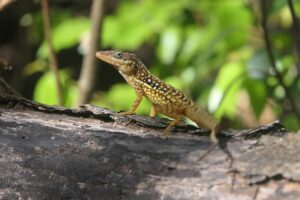
Anolis oculatus, native species of the island
To better understand the diet of the lizards, Annabelle and a team from the Forestry, Wildlife and Park Division of Dominica led by Officer Jeanelle Brisbane visited three sites on the island: a forest where only the native species is present, a forest where the two species cohabit, and an urbanized site. For three days, the researchers captured lizards in order to collect their feces. The technique does not require any particular manipulation of the animal, but simply some patience. The individuals, after being measured, weighed and sexed, have indeed a tendency to deliver the expected sample in the small bag where they are maintained, before being released at the place of their capture. In total, about 15 feces were collected.
To complete these samples, stomach contents of about thirty individuals of the invasive species were also collected. Some individuals of this potentially problematic species were indeed killed after being captured, allowing the collection of the digestive tract. The samples of feces and stomach contents will be analyzed in Guadeloupe using a genetic technique of metabarcoding to identify which animals they consumed. It will thus be possible to see what type of insects each species eats, and if the presence of the invasive species modifies the diet of the native species. Above all, it will be possible to know if the invasive species predates young anoles of the native species. Finally, the same genetic technique will be used to identify the parasites contained in the liver of the invasive species, and to better understand the potential health risk on the native species.
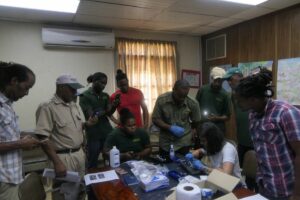
Lizard dissection training
In addition to data collection, the mission had an important training objective for our partners. In the field, four people were trained to the capture, collection of feces and euthanasia of lizards. Back in the laboratory, about fifteen people were able to learn, with Annabelle, how to dissect lizards to recover the digestive tracts. All participants were very interested. Norma Anthony, a former master’s student who did her internship with the MERCI project, was among the agents who benefited from the training. In addition to the officers working in the Forestry, Wildlife and Parks Division, three undergraduate students also benefited from the experience.
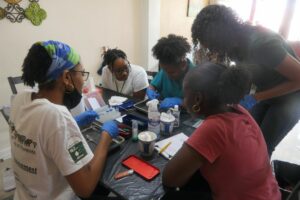
Training of several students
During the rest of her stay, Annabelle’s exchanges with the forestry officers, but also with the Minister of Environment himself, allowed her to develop the perspectives of collaboration between Dominica and the other Caribbean countries, notably through Caribaea Initiative: development of applied training for technicians, agreements with the university for courses in conservation, possibility of financing a PhD thesis… and of course common research projects.
While waiting for longer term projects, Jeannelle Brisbane is expected to come to Guadeloupe by the end of the month, for the genetic analysis of the collected samples. An additional opportunity to deepen future collaborations!
Last modified: 22 May 2023
